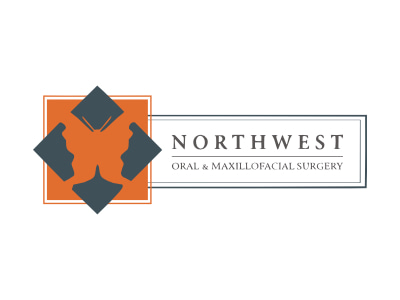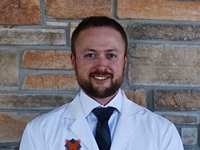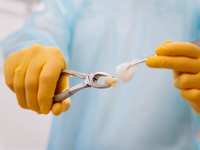- Categories :
- More
Debunking 5 Common Oral Surgery Myths

It’s no surprise that Americans are less familiar with oral and maxillofacial surgery than they are with the role played by their general dentist.
After all, the American Dental Association (ADA) estimates that there are more than 200,000 professionally active dentists in the United States, while the American Association of Oral and Maxillofacial Surgeons (AAOMS) estimates there are fewer than 10,000 of these experts in face, mouth, and jaw surgery.
Between the average patient’s lack of familiarity with oral surgery and the danger of “consulting Dr. Google”, there are a lot of oral surgery myths floating around.
“There is a plethora of information readily available to the patient that is not always trustworthy and more often misinforms patients on OMS medical/dental conditions, who should be treating these and why,” said Antonia Kolokythas, DDS, and member of the Journal of Oral and Maxillofacial Surgery editorial board. “Much of the information on the internet has not been vetted or curated for accuracy or level-appropriate language.”
Oral Surgeons Offer a Wide Range of Specialized Services
You can argue that oral surgeons treat everything from A to Z, but they certainly treat everything from A (sleep apnea) to W (wisdom teeth removal).
Oral and maxillofacial surgeons undergo years of extensive education and training, which allows them to perform many different types of oral surgery.
“Oral and maxillofacial surgeons train alongside medical residents in internal medicine, general surgery and anesthesiology, otolaryngology (ear, nose, and throat), plastic surgery, emergency medicine and other medical specialty areas,” says the AAOMS. “They are the only dental specialists recognized by the ADA surgically trained in a hospital-based residency program for a minimum of four years.”
Board-certified surgeons, such as the staff at Northwest Oral & Maxillofacial Surgery treat a wide range of issues daily including:
- Apicoectomy
- Bone grafting
- Cleft lip and palate surgery
- Dental implants
- Exposure of Impacted Teeth
- Facial injury/trauma surgery
- Oral, head, and neck pathology
- Periodontal surgery
- Reconstructive or corrective jaw surgery
- Sleep apnea surgery
- TMJ replacement or surgery
- Tooth extraction
Understanding Oral Surgery Facts vs. Myths
Part of the oral surgeon’s role in providing comprehensive care is helping their patients differentiate between oral surgery facts and myths.
Here are 5 of the most common oral surgery myths debunked:
- Myth No. 1 Dentists Can Handle All the Same Procedures as Oral Surgeons: Dentists and oral surgeons work together as a team to provide oral care for patients. Dentists are your first line of defense in diagnosing, treating, and providing preventative care, and often will refer patients to oral surgeons. While dentists can perform some procedures in their offices, more complicated procedures should or must be handled by oral surgeons with specialized training. One way of thinking about the differences between dentists and oral surgeons is that dentists typically take care of everyday issues, while oral surgeons are trained to handle rare issues. In cases of facial trauma, for example, hospitals will summon oral surgeons to treat patients. Oral surgeons are also uniquely qualified to administer anesthesia because of their extensive education, training, and clinical experiences.
- Myth No. 2 Oral Surgery Anesthesia is Very Risky: Some patients fear that any sort of anesthesia is risky, but the truth is that anesthesia offered in modern medical settings is safe and predictable. Healthline says that “general anesthesia is very safe. Even if you have significant health problems, you will most likely tolerate general anesthesia without serious problems.” Northwest Oral & Maxillofacial Surgery has a board-certified anesthesiologist, Dr. Penelope Duke, MD, who serves as the Medical Director of Anesthesia Services and helps deliver safe and state-of-the-art anesthesia. The riskiest aspect of anesthesia can be when patients fail to disclose illicit drug use and/or misuse of prescription drugs which can cause complications during sedation. Always be honest with healthcare providers about your complete medical history prior to any surgical procedures.
- Myth No. 3 Oral Surgery Will Be Very Painful: It may be human nature to dwell on the worst case scenario and many patients just assume that oral surgery will be extremely painful. Thanks, however, to the myth we debunked above, anesthesia, patients will not feel any pain during the actual procedure and will have to just deal with discomfort post-surgery. Soreness can be expected, but intense pain is unlikely, but every patient has a different threshold or tolerance for pain. Post-surgery medications are also provided to help patients manage their comfort levels.
- Myth No. 4 Recovery from Oral Surgery Will be Long and Hard: The truth is that most oral surgery patients recover in a few days. While some complicated procedures may require a longer recovery time, patients can typically expect to not miss much work or school after their oral surgery. The key to avoiding a long and hard recovery is to follow your detailed post-surgery instructions provided by your oral surgeon after the procedure. Monitoring what you eat and avoiding habits like smoking and drinking can help you recover faster from oral surgery.
- Myth No. 5 Oral Surgery is Too Expensive for Most People: While different procedures will have their own costs, most patients are surprised to learn that oral surgery can be affordable with many procedures partially (or even fully) covered by dental and/or medical insurance depending on the situation. Northwest Oral & Maxillofacial Surgery will call your insurance company to obtain the maximum coverage for your procedure and file a claim with your insurance company after the surgery.
Contact Northwest Oral & Maxillofacial today to schedule a consultation to have all your oral surgery questions answered.


















